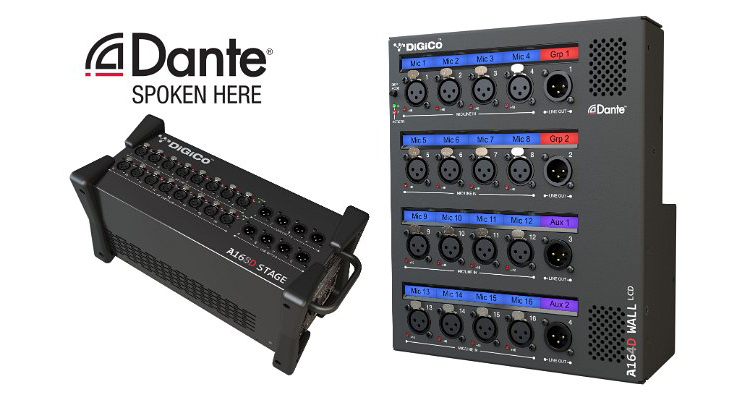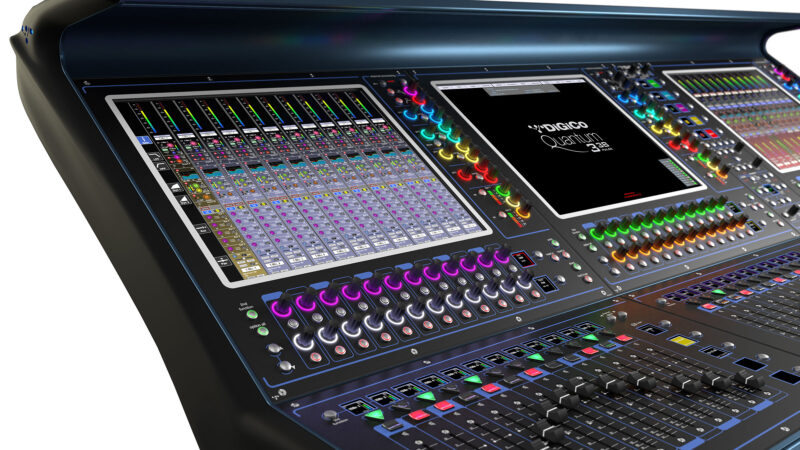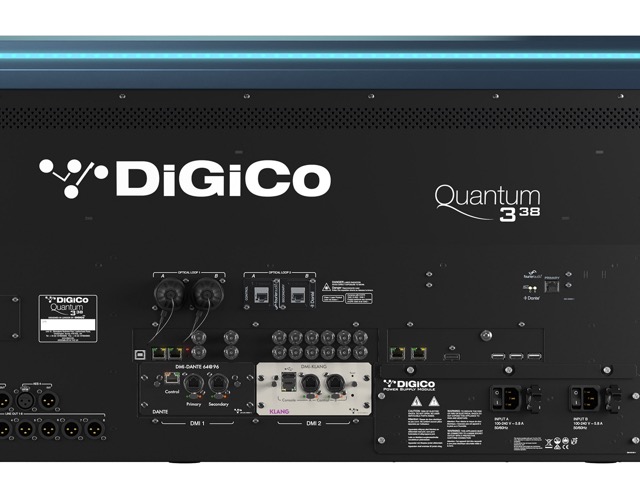DiGiCo Releases Software Update for its S Series Consoles

DiGiCo’s latest software update, V2.6, for its S Series consoles delivers new features including control of the A164D Wall LCD and A168D Stage for networked audio in installations via the Dante 64@96 DMI as well as support for the DMI-KLANG. Since both the A164D Wall LCD (16 x 4) and the A168D Stage (16 x 8) I/O expanders now have Dante connectivity, they can now be placed on any network for control. With the new Dante DMI 64@96 card installed in an S Series console, access to as many as 64 channels of I/O to or from the Dante network is allowed. Ultimately, this means control of both racks and can be set to either be in Full Control mode or Receive Only mode in the audio routing menu. In full-control mode, socket properties can be changed from the console, whereas in receive-only mode, socket property values are only received from the Dante IO device, and not transmitted by the console.
The DMI-KLANG takes KLANG: fabrik’s immersive in-ear mixing core and rebuilds with today’s latest FPGA technology to deliver immersive mixes of 64 inputs for 16 musicians. It includes a processing latency of a quarter of a millisecond. The DMI-KLANG connects directly to DiGiCo consoles’ internal audio stream without any additional hardware I/O overhead.
By adding support for the DMI-KLANG to S-Series consoles, the DMI-KLANG card enables audio to be routed from the console to the card and vice versa.
The release of V2.6 also sees the addition of an RTA (Real Time Analyzer) added to the channel EQ view of S Series consoles, which can be toggled to be shown/hidden using the button in the top bar. The RTA meters are taken post-EQ, meaning that any adjustments in EQ are reflected in the RTA’s metering.
Under the global scopes view (accessible from the Snapshot list view), there is now a separate scope for Control Group names, enabling Control Group names and Channel names (for input, aux, group and matrix channels) be selected separately. Both sets of name scopes will follow that state of the “name” scope for sessions created in older software versions, which means that functionality remains unchanged.
There is also the option to disable the double-tap to flatten the EQ band, Control Group Spill set can now be recalled with presets, and the default value for Control Group Faders is now to 0dB.





